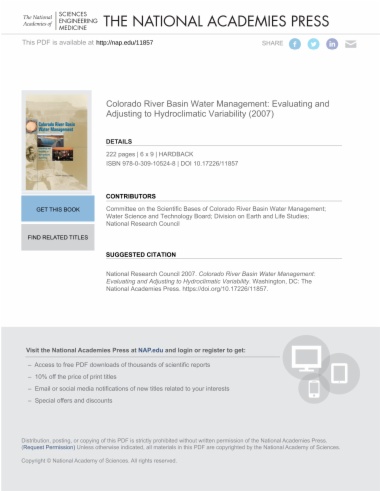

Recent studies of past climate and streamflow conditions have broadened understanding of long-term water availability in the Colorado River, revealing many periods when streamflow was lower than at any time in the past 100 years of recorded flows. That information, along with two important trends—a rapid increase in urban populations in the West and significant climate warming in the region—will require that water managers prepare for possible reductions in water supplies that cannot be fully averted through traditional means. Colorado River Basin Water Management assesses existing scientific information, including temperature and streamflow records, tree-ring based reconstructions, and climate model projections, and how it relates to Colorado River water supplies and demands, water management, and drought preparedness. The book concludes that successful adjustments to new conditions will entail strong and sustained cooperation among the seven Colorado River basin states and recommends conducting a comprehensive basinwide study of urban water practices that can be used to help improve planning for future droughts and water shortages.